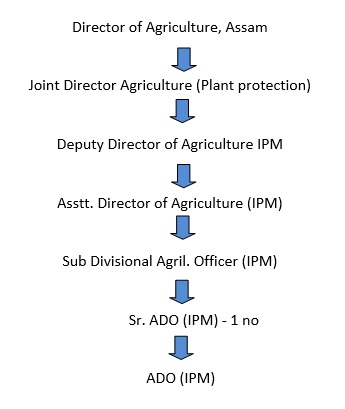Indiscriminate and injudicious use of chemical pesticides in agriculture has resulted in several associated adverse effects such as environmental pollution, ecological imbalances, pesticides residues in food, fruits and vegetables, fodder, soil and water, pest resurgence, human and animal health hazards, destruction of bio-control agents, development of resistance in pests etc. Therefore, Govt. of India has adopted Integrated Pest Management (IPM) as cardinal principle and main plank of plant protection in the overall Crop Production Programme since 1985. IPM is an eco-friendly approach which encompasses cultural, mechanical, biological and need based chemical control measures. The IPM approach is being disseminated through various schemes/projects at national and state level.
As we approached 21st century there is increasing demand on organically produced food, conservation of biodiversity, unpolluted environment and sustainable agriculture. To face these challenges, bio-control agents and bio-pesticides have emerged as viable alternatives in pest & diseases control. In spite of the thrust from Govt. of India and Govt. of Assam the adoption of bio-control agents and bio-pesticides as an agro-input by farmers is still in infancy.
The present manpower in the SBCL is as under-

| Title | Size | Detail |
|---|---|---|
| 486.48 KB | ||
| 464.58 KB | ||
| 261.78 KB | ||
| 165.96 KB |